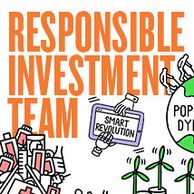We discuss why governments must lead amid the stark realities of climate change in the post-Covid recovery.
Key points:
- The sixth United Nations Intergovernmental Panel on Climate Change (IPCC) report provides clear evidence that human intervention is driving climate change.
- The report calls for an immediate reduction in carbon emissions to avert a climate catastrophe.
- Despite pledges to tackle carbon emissions, governments globally continue to approve thousands of oil and gas drilling permits, while numerous new coal mines are set to be built.
- Alone, individuals and companies are unlikely to be able to achieve the scale of change that is required if the governance structures that dominate policy decisions provide the wrong or insufficient incentives.
The need for economic expansion to support the post-Covid recovery collides with the scientific findings of the latest United Nations Intergovernmental Panel on Climate Change (IPCC) report that calls for an immediate reduction in carbon emissions.
August 2021 saw the publication of the UN’s sixth IPCC report, and the report provides clear evidence that human intervention is driving climate change. It warns that, without immediate and rapid reductions in carbon emissions, we are likely to see devastating and potentially irreversible consequences as soon as the next decade. The question governments, policymakers, corporations and individuals will now be asking themselves is what can be done to avert catastrophe.
Fossil-fuel demand bounces back
The findings of the report come at a time when the need for post-Covid economic recovery has led governments and central banks to support recovering economic activity to the tune of trillions of dollars in liquidity globally. This abundance of capital has encouraged an acceleration in both economic growth and consumption, which has, in turn, already increased the demand for coal. US gas consumption reached a record high in July, indicating that the pause in emissions experienced throughout the pandemic was temporary, buying us only a small amount of time before activity and emissions began accelerating again.
Despite the International Energy Agency’s Net Zero by 2050 report[1] finding that there is no need for further investment in new fossil-fuel supplies, governments globally continue to approve thousands of oil and gas drilling permits, and numerous new coal mines are set to be built around the world. While these investments will certainly bring short-term economic gain, they are unaligned with what has now become an undeniable science presented in the IPCC report.
Government action key to success
With an estimated 80% of global fossil fuels owned or controlled by sovereign nations, net-zero emissions can only be achieved if governments fully play their part. It is clearer than ever that rhetoric must be matched by action, and we believe government behaviour is the key to tackling climate change. Although we have seen some bold commitments in recent years, it seems clear that many government pledges have so far remained unfulfilled.
We believe it is up to governments to progressively incentivise the transition because we are currently not aligned to the 1.5 – or even 2 – degree goal, by any stretch. Systemic change is required, and the ideal outcome of the forthcoming UN Climate Change Conference (COP26) in November is policy that is binding. This means mandated government-enabled incentives and disincentives.
Renewable energy incentives required
Governments will also need to put strong incentives into the system to encourage and accelerate the development of renewables and clean energy. Extrapolating current levels, emissions ambitions set out for 2030 will not be met, so development needs to be accelerated if we are to effect change.
Undoubtedly, this needs to be a global effort, although it will be challenging for some. Currently, some major emerging-market economies are not even projected to reach their peak emissions until 2030. Although a handful of western economies appear to have done a good job at reducing emissions, many rely on offshore manufacturing, so it is a different picture when we look at emissions on a global consumption basis. Living standards for many in such manufacturing hubs need to be addressed, and there needs to be a dramatic change in the way that goods and services are conceived, created and delivered.
Clearly, there is no single solution that can fix the climate crisis and enable recovery from the effects of the Covid pandemic. Environmental, social and governance (ESG), green and sustainable investing alone will not halt climate change, despite the powerful signal that it sends.
Alignment with sovereigns essential
For us as responsible investors, engagement and aggressive voting policies will remain crucial, but without the alignment with sovereign bodies, we risk failing to meet climate-change goals – and the effects could be irreversible.
Few threats are more pressing for the world than those posed by unmitigated climate change. While it represents a major systemic risk to financial markets, the consequences run far beyond mere economic impacts and potentially threaten life on the planet as we know it. Alone, individuals and companies are unlikely to be able to achieve the scale of change that is required, nor can they achieve it in isolation from wider civil society if the governance structures that dominate policy decisions provide the wrong or insufficient incentives.
[1] https://www.iea.org/reports/net-zero-by-2050
This is a financial promotion. These opinions should not be construed as investment or other advice and are subject to change. This material is for information purposes only. This material is for professional investors only. Any reference to a specific security, country or sector should not be construed as a recommendation to buy or sell investments in those securities, countries or sectors. Please note that holdings and positioning are subject to change without notice. Newton manages a variety of investment strategies. Whether and how ESG considerations are assessed or integrated into Newton’s strategies depends on the asset classes and/or the particular strategy involved, as well as the research and investment approach of each Newton firm. ESG may not be considered for each individual investment and, where ESG is considered, other attributes of an investment may outweigh ESG considerations when making investment decisions. [General regulatory disclosures] Issued by Newton Investment Management Limited, The Bank of New York Mellon Centre, 160 Queen Victoria Street, London, EC4V 4LA. Registered in England No. 01371973. Newton Investment Management Limited is authorised and regulated by the Financial Conduct Authority, 12 Endeavour Square, London, E20 1JN. Newton Investment Management Limited is registered with the SEC as an investment adviser under the Investment Advisers Act of 1940. Newton’s investment business is described in Form ADV, Part 1 and 2, which can be obtained from the SEC.gov website or obtained upon request. ‘Newton Investment Management Group’ is used to collectively describe a group of affiliated companies that provide investment advisory services under the brand name ‘Newton’ or ‘Newton Investment Management’. Investment advisory services are provided in the United Kingdom by Newton Investment Management Ltd (NIM) and in the United States by Newton Investment Management North America LLC (NIMNA). Both firms are indirect subsidiaries of The Bank of New York Mellon Corporation (‘BNY Mellon’).
Important information
This material is for Australian wholesale clients only and is not intended for distribution to, nor should it be relied upon by, retail clients. This information has not been prepared to take into account the investment objectives, financial objectives or particular needs of any particular person. Before making an investment decision you should carefully consider, with or without the assistance of a financial adviser, whether such an investment strategy is appropriate in light of your particular investment needs, objectives and financial circumstances.
Newton Investment Management Limited is exempt from the requirement to hold an Australian financial services licence in respect of the financial services it provides to wholesale clients in Australia and is authorised and regulated by the Financial Conduct Authority of the UK under UK laws, which differ from Australian laws.
Newton Investment Management Limited (Newton) is authorised and regulated in the UK by the Financial Conduct Authority (FCA), 12 Endeavour Square, London, E20 1JN. Newton is providing financial services to wholesale clients in Australia in reliance on ASIC Corporations (Repeal and Transitional) Instrument 2016/396, a copy of which is on the website of the Australian Securities and Investments Commission, www.asic.gov.au. The instrument exempts entities that are authorised and regulated in the UK by the FCA, such as Newton, from the need to hold an Australian financial services license under the Corporations Act 2001 for certain financial services provided to Australian wholesale clients on certain conditions. Financial services provided by Newton are regulated by the FCA under the laws and regulatory requirements of the United Kingdom, which are different to the laws applying in Australia.






Comments